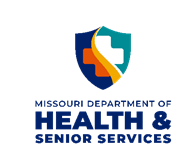September 12, 2025

Whitepaper: From Burnout to Better Benefits: What 4.5M Healthcare Workers Want Now
Financial stress, burnout and benefit dissatisfaction are driving turnover across healthcare – but new data from 4.5 million nonprofit healthcare workers reveals a path forward for employers.
Based on survey insights from more than 1.5 million nurses and 500,000 physicians, this report highlights the disconnect between what healthcare workers need and what benefit programs currently deliver. It outlines how HR, benefits and finance leaders can better support a multigenerational workforce – while improving retention, engagement and long-term retirement readiness.
Download to learn:
- The top 3 benefits that drive loyalty and how leading systems are delivering them,
- What successful organizations are doing to address student debt and financial stress head-on, and
- How to evolve your total rewards strategy to meet future workforce expectations and ROI goals.
Click Here to Download the Whitepaper




